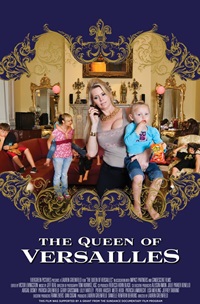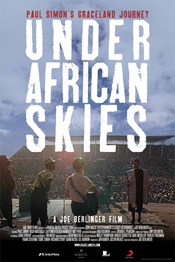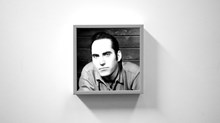Celebrating its 15th year, the Full Frame Documentary Festival in Durham, North Carolina, provided a wide range of genres and choices, each a great film. Doc lovers were rewarded with an especially strong slate—fifty-seven films in all—of some of the best documentaries from around the world.

Lauren Greenfield's The Queen of Versailles was the highlight of the festival. What begins as a somewhat light-hearted profile of time-share tycoon David Siegel and his third wife, Jackie, as they attempt to build the largest single family house under one roof in America, morphs (post 2009 global financial crisis) into a probing, disturbing examination of the American dream. More than simply a personal indictment of its wealthy subjects, the film chillingly shows the ways that the love of money alters us, sometimes so gradually that we do not realize it. Perhaps one of the greatest achievements of Greenfield's documentary is that it does not turn the Siegels into monsters. Because the dream they sold to average citizens—enjoy now, pay later—is so similar to the one they lived, the ways they justify their choices to themselves and try to deal with the consequences of an addiction to cheap money (i.e. easy credit) may sound uncomfortably familiar to many Americans.
Presidential election years usually bring a slate of political movies, and S. Leo Chiang's Mr. Cao Goes to Washington is a riveting entry into that genre. Featuring seemingly unprecedented behind-the-scenes access, Chiang's film follows first term Vietnamese-American Republican Joseph Cao as he defends his Congressional seat in an historically Democratic (and largely African-American) Louisiana district. Cao's willingness to put personal convictions above party loyalties alternately alienates first his Republican donors, when he is the only Republican Congressman to vote in favor of Health Care Reform, and later his Democratic constituents, when he rejects the Senate version of the same bill for reinserting abortion funding. The film advertises itself as an examination of whether or not bi-partisanship is possible in a politically polarized age, but it is really about a more fundamental question: in a representative government, should an elected official vote with his constituents, his party, or his own conscience?
Two strikingly different films depict adolescents thrust into intensely competitive environments, facing long odds to try to attain a dream and build a life. David Redmon's and Ashley Sabin's Girl Model begins with a room full of girls in Siberia, most wearing only their underwear while "competing" for a chance to be discovered by a talent agent. As the happy winner is sent to Japan, ostensibly for two pre-arranged photo shoots, she—and we—get a crash course in the realities behind the dream of glamorous cover shoots and luxurious lifestyles. The documentary is intensely disturbing, and the filmmakers have had to answer charges from one subject unhappy with how she was portrayed
.
While Girl Model left many in the audience angry at how adolescents are exploited, Bess Kargman's First Position was the proverbial crowd pleaser. It profiles a half dozen competitors in Youth America Grand Prix, a prestigious global ballet competition culminating in scholarships and contracts with the most famous dance companies in the world. With lots of generous dance footage, the film is sure to interest ballet fans, but even those unfamiliar with the intricacies of classical dance will find themselves rooting for kids who have defied stereotypes by working and sacrificing for years in hopes that a few minutes on stage will change their lives forever.

Under African Skies is part art-process documentary, part political history. Musician Paul Simon celebrates the twenty-fifth anniversary of his album Graceland by returning to South Africa where he had bucked a cultural embargo a quarter of a century earlier to record his career masterpiece and make what he considered an unassailable anti-apartheid statement. The documentary is at its most fascinating when Simon is willing to listen to those who still question his decision, thus showing how moral decisions, even with more than two decades of hindsight, are rarely cut-and-dried.
Macky Alston's Love Free or Die evidences the director's desire to, as he told Christianity Today, "humanize not just gays and lesbians but also Christians" by charitably representing the full range of responses within the Episcopal Church of America to its first openly gay bishop, Eugene Robinson. As the son of a Presbyterian minister who, for much of his life, had objections to same-sex unions, Alston sought to make a film that acknowledged Robinson's courage without demonizing those who voted against him.
Finally, if there was one sure fire hit at the festival, it was Seth Keal's CatCam, a short film about Jürgen Perthold, whose curiosity about what his adopted stray cat did all day prompted him to invent a micro-camera attached to Mr. Lee's collar. The results are both strangely artistic and surprisingly emotional as a rare cat's eye view of the world makes its owner rethink his relationship with the animal whose love he ultimately cannot resist.
Kenneth R. Morefield, a frequent contributor to CT Movies & TV, is the editor of Faith and Spirituality in Masters of World Cinema (Volumes I & II) and the founder of 1More Film Blog.

Support Our Work
Subscribe to CT for less than $4.25/month




















